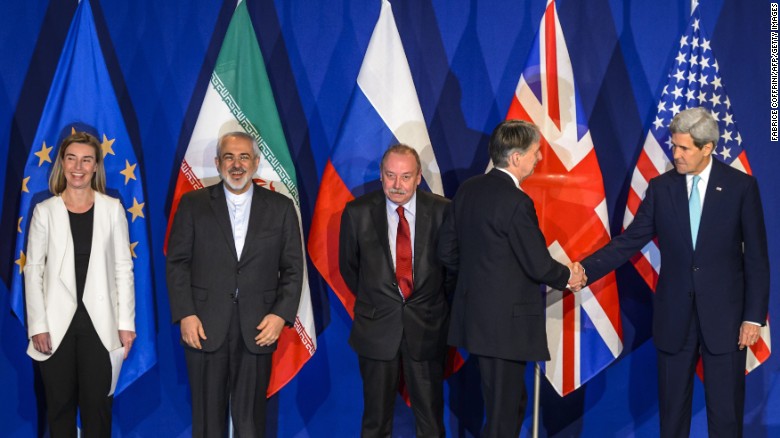
Swiss and Austrian authorities are investigating claims of potential espionage during recent nuclear talks between Iran and world powers, including the United States, officials from each nation said Thursday.
The investigations started after Russian Internet security firm Kaspersky Lab said this week that it had uncovereda sophisticated cyberespionage weapon in use around the world, and specifically targeting hotels that hosted the nuclear talks.
An Austrian Interior Ministry spokesman, Karl-Heinz Grundböck, would give no further details but said “all relevant locations” are being investigated.
The Office of the Attorney General of Switzerland said it had “opened criminal proceedings against persons unknown on suspicion of political espionage.”
A house was searched May 12 in Geneva, it said, “and IT hardware as well as software has been seized. The aim of the aforementioned house search was to seize respective information as well as the malware; it was of particular interest to investigate whether the malware infected the respective IT systems.”
Neither country has said who it believes to be behind the suspected espionage.
Kaspersky Lab said the attacks involved a virus dubbed Duqu 2.0, which exploits software vulnerabilities to infiltrate and gather information.
Based on the sophistication, it’s clear the virus was part of a state-sponsored attack, said David Emm, senior security researcher at Kaspersky Lab.
So who was behind it?
“Trying to specifically say which government might be involved is impossible,” Emm said.
Even if the evidence seems to point toward one country, he said, that doesn’t mean it’s accurate.
“It is so easy for an attacker to leave false flags, if you like, to set a false trail of breadcrumbs leading to somebody else’s door,” he said.
Minister: ‘No basis’ to claims Israel is involved
An earlier version of the Duqu virus has been linked to Israel.
And The Wall Street Journal reported in March that Israel had obtained confidential information about the closed-door negotiations to help it argue against a potential deal.
Israel strongly denied the report, however.
“These allegations are utterly false,” a senior official in the Israeli Prime Minister’s office told CNN at the time. “The state of Israel does not conduct espionage against the United States or Israel’s other allies.”
Asked Thursday about the allegations of potential espionage, Israeli Foreign Ministry spokesman Emmanuel Nahshon told CNN that the ministry had no comment. The office of Israeli Prime Minister Benjamin Netanyahu also declined to comment.
Earlier Thursday, Israeli Deputy Foreign Minister Tzipi Hotovely told Israel Army Radio there was “no basis to all the international reports about the involvement of Israel in this affair.”
She added, “What is far more important is that we will prevent a bad agreement, or else at the end of the day, we will find ourselves with an Iranian nuclear umbrella.”
Framework deal
The Israeli government’s use of the information it allegedly gleaned — sharing it with U.S. lawmakers and others to undercut support for a deal — angered the White House, the Journal said in its report, citing current and former U.S. officials.
On Thursday, several U.S. officials told CNN that the Obama administration doesn’t doubt reports accusing Israel of using the virus to spy on the Iran talks. Espionage during the talks is nothing new, one official said.
“They do it all the time,” the official said. “They did it last year, and they did it again this year. This doesn’t come as any great surprise to anyone.”
The talks involved the so-called P5+1, made up of the United States, Russia, China, Britain, France and Germany, across the table from Iran.
The negotiations, which wrapped up in the Swiss city of Lausanne in April, resulted in aframework deal that was backed by the White House but opposed by Netanyahu and many in the U.S. Congress.
The parties have until the end to June to work out the details and put the plan to paper.
As reported by CNN
